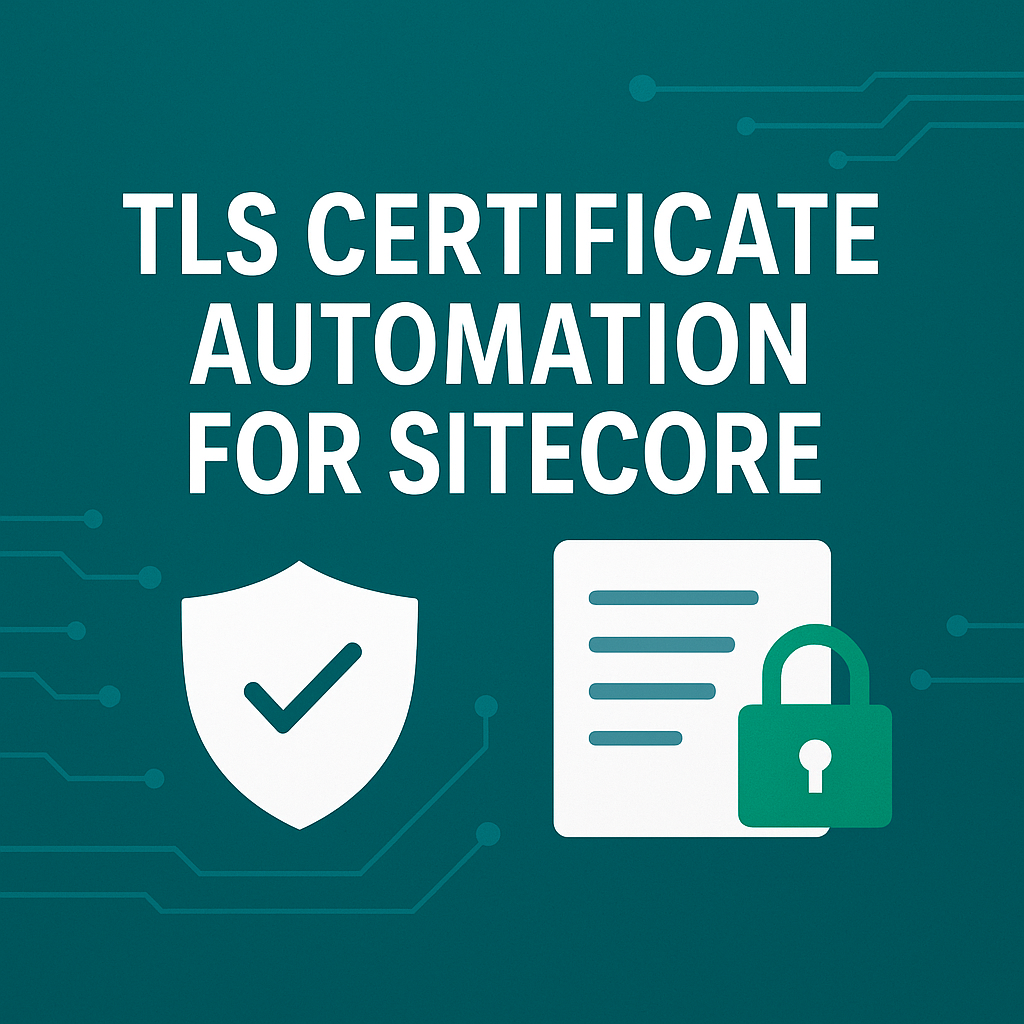TLS certificate lifetimes are being significantly reduced over the next few years as part of an industry-wide push toward greater security and automation. Here’s the phased timeline currently in place:
Now through March 15, 2026: Maximum lifetime is 398 days
Starting March 15, 2026: Reduced to 200 days
Starting March 15, 2027: Further reduced to 100 days
Starting March 15, 2029: Reduced again to just 47 days
For teams managing Sitecore implementations, this is more than a policy shift—it introduces operational urgency. As certificates begin expiring more frequently, any reliance on manual tracking or last-minute renewals could result in costly downtime or broken integrations.
If your Sitecore environment includes secure endpoints, custom domains, or external integrations, now is the time to assess your certificate strategy and move toward automation.
Why This Matters for Sitecore
Sitecore projects often involve:
Multiple environments (development, staging, production) with different certificates
Custom domains or subdomains used for CDNs, APIs, headless apps, or marketing campaigns
Third-party integrations that require secure connections
Marketing and personalization features that rely on seamless uptime
A single expired certificate can lead to downtime, loss of customer trust, or failed integrations—any of which could severely impact your digital experience delivery.
Key Risks of Shorter TLS Lifetimes
Increased risk of missed renewals if teams rely on manual tracking
Broken environments due to expired certs in Azure, IIS, or Kubernetes configurations
Delayed deployments when certificates must be re-issued last minute
SEO and trust damage if browsers start flagging your site as insecure
How to Prepare Your Sitecore Project Teams
To stay ahead of the TLS certificate lifecycle changes, here are concrete steps you should take:
1. Inventory All TLS Certificates
Audit all environments and domains using certificates
Include internal services, custom endpoints, and non-production domains
Use a centralized tracking tool (e.g., Azure Key Vault, HashiCorp Vault, or a certificate management platform)
2. Automate Certificate Renewals
Wherever possible, switch to automated certificate issuance and renewal
Use services like:
Azure App Service Managed Certificates
Let’s Encrypt with automation scripts
ACME protocol integrations for Kubernetes
For Azure-hosted Sitecore instances, leverage Key Vault and App Gateway integrations
3. Establish Certificate Ownership
Assign clear ownership of certificate management per environment or domain
Document who is responsible for renewals and updates
Add certificate health checks to your DevOps dashboards
4. Integrate Certificate Checks into CI/CD Pipelines
Validate certificate validity before deployments
Fail builds if certificates are nearing expiration
Include certificate management tasks as part of environment provisioning
5. Educate Your Team
Hold knowledge-sharing sessions with developers, infrastructure engineers, and marketers
Make sure everyone understands the impact of expired certificates on the Sitecore experience
6. Test Expiry Scenarios
Simulate certificate expiry in non-production environments
Monitor behavior in Sitecore XP and XM environments, including CD and CM roles
Validate external systems (e.g., CDNs, integrations, identity providers) against cert failures
Final Thoughts
TLS certificate management is no longer a “set it and forget it” task. With shorter lifetimes becoming the norm, proactive planning is essential to avoid downtime and ensure secure, uninterrupted experiences for your users.
Start by auditing your current certificates and work toward automating renewals. Make certificate monitoring part of your DevOps practice, and ensure your Sitecore teams are aware of the upcoming changes.
Action Items for This Week:
Identify all TLS certificates in your Sitecore environments
Document renewal dates and responsible owners
Begin automating renewals for at least one domain
Review Azure and Sitecore documentation for certificate integration options
Source: Read MoreÂ


